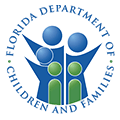In America’s drinking culture, socializing and alcohol are frequently intertwined. Alcohol has developed a reputation as a social enhancer, a means of controlling social anxiety, and a “social lubricant.” Alcohol may be the substance that is most widely recognized worldwide, although many people do not recognize it as such because it is so normalized.
Many persons who drink alcohol do so in circumstances where they are surrounded by other people; as a result, they identify as “social drinkers.” When someone refers to themselves as a social drinker, they typically indicate that they only consume alcohol during social events. Parties, events, sporting contests, and other gatherings where alcohol is served, and Social drinking is encouraged may fall under this category.
Social drinkers only consume alcohol in social situations and avoid doing so alone. For those who consider themselves to be social drinkers, there is no established pattern of consumption. Their drinking habits can range from having a drink with pals every weekend to having one drink at a business meeting every month. At Beachcomber IOP, we recognize the slippery slope of identifying as a social drinker, resulting in a dependency issue. In this article, we will share ten warning signs that you and your loved ones should watch out for to avoid social drinking becoming a problem.
Ten Warning Signs That Social Drinking May Be a Problem
There may be occasions when you wonder if your drinking is a problem. You can determine whether your relationship with alcohol has a negative impact by looking for any one of the ten indicators provided by Beachcomber IOP listed below.
1. Prior to events or social gatherings, you “pregame.”
If you use alcohol as a social lubricant to get through an alcohol-free event or if you have a few drinks before attending an event where you’ll be drinking significantly more, your drinking may be a problem. It may be time to examine your relationship with alcohol if you frequently drink in order to prepare for more drinking.
2. You no longer receive invitations to parties with alcohol.
When friends or relatives stop inviting you to gatherings where alcohol is offered, it may be a clue that your relationship with alcohol needs to be examined. It may have been an isolated incident where things got “out of hand,” or it may have happened on a regular basis.
3. You Feel Shame or Guilt After Drinking.
Do you ever feel regret after speaking or acting in a drunken moment? You might say or do things that aren’t in line with your values or character when your inhibitions are decreased. Alcohol’s effects can cause you to act in ways that will make you feel melancholy or unhappy the next day. It might be time to consider how alcohol functions in your life if you constantly criticize the decisions and deeds you commit while intoxicated.
4. When people criticize your drinking, you become defensive.
There may be a difference between how you and others perceive your actions. Although you might believe that your drinking habits are the same regardless of who you hang out with, the effects of alcohol might vary greatly from person to person. People don’t frequently become enraged over issues in which they have no stake. It could be time to look at your drinking habits if you frequently defend your habits.
5. You Consume More Alcohol Than Intended.
If drinking doesn’t give you a wonderful “buzz,” what’s the point? Alcohol misuse or binge drinking is motivated by the notion that the next drink will make you feel even better. It’s what drives the pursuit of that euphoric feeling and leads to drinking more alcohol than is intended. It may be time to talk to a professional about your alcohol usage if you frequently establish limitations on how much you will drink and then exceed those boundaries.
6. After the social event has ended, you keep drinking.
Do you continue to consume alcohol after an event to keep the celebration going? After the event, if nobody joins you, you might find yourself having a nightcap when you get home. It might be time to look at your relationship with alcohol if your drinking limitations go beyond social settings like events.
7. You Drink as a Reward.
Perhaps it’s easier to find an excuse to drink now. You start to see drinking as a reward for finishing a task, reaching a target, or simply making it through the day. It’s time to consider how much of a role alcohol plays in your life when alcohol is the reward that motivates your actions.
8. You Drink to Control Your Emotions.
Alcohol might be viewed by some as a reward and by others as a way to put out emotional fires. Drinking and unpleasant feelings might have a close relationship. When you use alcohol to “solve” the “problem of feeling,” you establish a deep emotional bond that goes beyond simply drinking with others.
9. Drinking Causes Blackouts.
Do you occasionally find yourself nodding inattentively when others discuss events that occurred while you were drinking? Do you notice that certain times from the day before’s binge- or heavy-drinking session are missing? Maybe you sent messages from your phone that you don’t recall sending, or you wake up in bed and can’t remember how you got there. That is a blackout and proof that you have reached a certain level of social drinking. If you’ve gone through it, it means your capacity to “control” alcohol use has been damaged.
10. You have exhibited behaviors in an effort to curb your drinking.
Alcoholics Anonymous (AA) puts it so well: “All of us occasionally felt like we were regaining control, but such periods, which were typically brief, were invariably followed by even less control, which eventually led to pitiful and incomprehensible demoralization.” The greatest passion of every abnormal drinker is the hope that one day he can manage and enjoy his drinking.
Conclusion
It may be time to think about specialist alcohol addiction treatment programs like Beachcomber IOP to quit drinking if you or a loved one can relate to this all too well. Not all heavy drinkers who battle alcohol misuse need inpatient alcohol rehab and a thorough alcohol detox. Depending on the severity of your problem, there are different levels of alcoholism treatment.
Some people need the isolation from stressors like social gatherings and activities, as well as the intensive care that Beachcomber’s inpatient rehab offers. Others can start their addiction recovery at Beachcomber IOP with day treatment in an outpatient facility. Individual and group therapy formats for behavioral therapy and addiction counseling are offered in professional treatment settings. Along with helping you develop coping mechanisms to avoid relapse, your treatment team will introduce you to people who can relate to what you’re going through.






